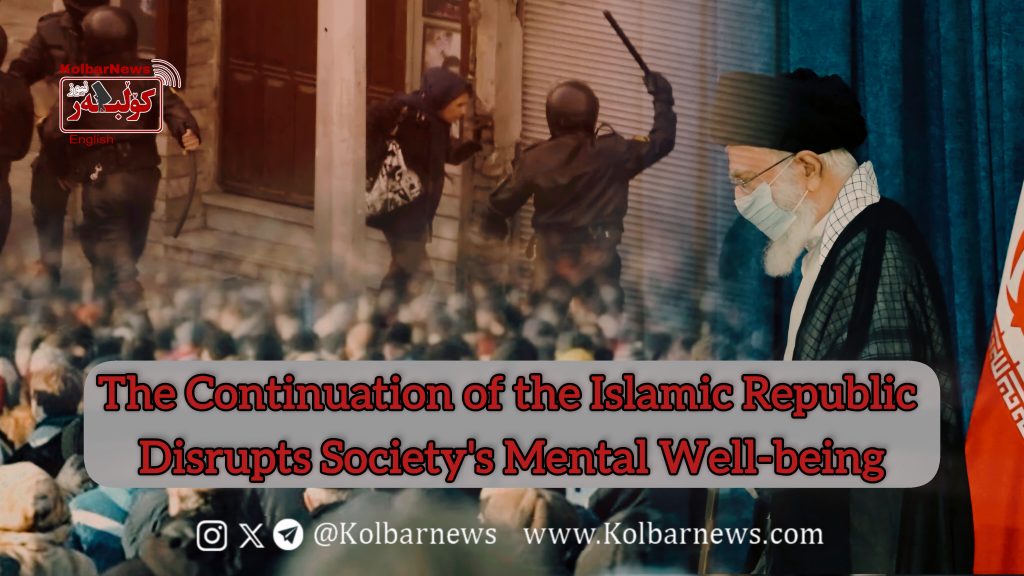
The spokesperson for Iran’s Judiciary has announced the filing of 700,000 assault cases in the current year, marking an increase of more than 40% compared to last year. Notably, these statistics continue to rise annually.
A significant issue in Iran under the Islamic regime is the alarming decline in people’s tolerance toward one another. The Gallup polling institute has ranked Iran, Iraq, and South Sudan as the angriest countries in the world. According to Gallup, 50% of Iran’s population experiences anger.
Under the Islamic Republic, Iran possesses all the elements of a nervous, anxious, chaotic, and crisis-ridden society in every social, political, economic, cultural, and environmental dimension. This regime has driven interpersonal tolerance to the brink of collapse. Environmental disasters such as dust storms, floods, and earthquakes, combined with pandemics like COVID-19, crippling inflation and unemployment, systemic discrimination and violence against Kolbars and Sukhtbars, systemic discrimination against religious and ethnic minorities, bureaucratic corruption, enforced hijab, and the actions of the regime’s thugs—all contribute to serious threats against public mental health and safety.
Major social issues, including widespread addiction, escalating state violence in various forms, the constant threat of security forces, a twentyfold increase in the number of ordinary prisoners, rising divorce rates, state-sanctioned prostitution under the guise of sigheh (temporary marriage), astronomical thefts by regime officials, road insecurity, lack of medical services, and the growing number of child laborers, homeless people, and those without adequate housing, along with a general loss of hope for improved conditions, all explain the pervasive anger and frustration within society.
A domestic study highlights the issue, stating:
“As poverty, discrimination, and inequality grow, many people are forced to dedicate their efforts solely to meeting their basic needs, leaving no time or capacity to attend to others’ needs or the essential social responsibilities necessary for maintaining an effective community. This leads to an individualism that reduces trust among individuals as well as between the people and the ruling regime.”
This documented research clearly indicates a widespread social disarray. In such circumstances, it is unsurprising that violence spreads among people, leading to increasingly aggressive behavior in society, even from individuals who were previously considered unlikely to act this way.
One prominent example of the factors driving increased violence and social agitation is the rise in executions. Reports indicate that over the past year, the number of executions in Iran has doubled, placing the country at the top globally in this regard.
Public executions, which are widely practiced under the Islamic Republic, exemplify the deliberate propagation of violence within society. The act of execution inherently fosters a culture of revenge and legitimizes violence. When the state sanctions killing as justice, it paves the way for others to take justice into their own hands. Execution not only fails to reduce crime rates but also devalues human life, setting a precedent for repeated acts of violence in society. The justifications for capital punishment are blatant lies; humans are not inherently violent, but rather, the material conditions of their social lives—imposed directly by the state and ruling classes—drive them toward violence.
The Islamic regime in Iran represents a fundamental threat to the psychological security and well-being of its people. Achieving a society with less violence, greater happiness, and more contentment is impossible without freeing the nation from this government. Every additional day of the regime’s existence exacerbates public anger, violence, bloodshed, and the deterioration of the population’s mental and physical health.

